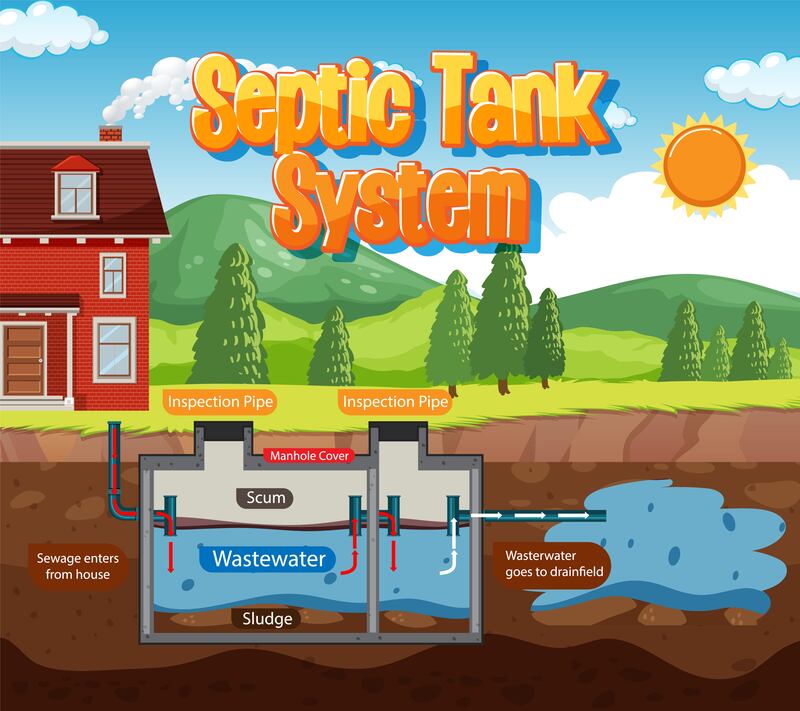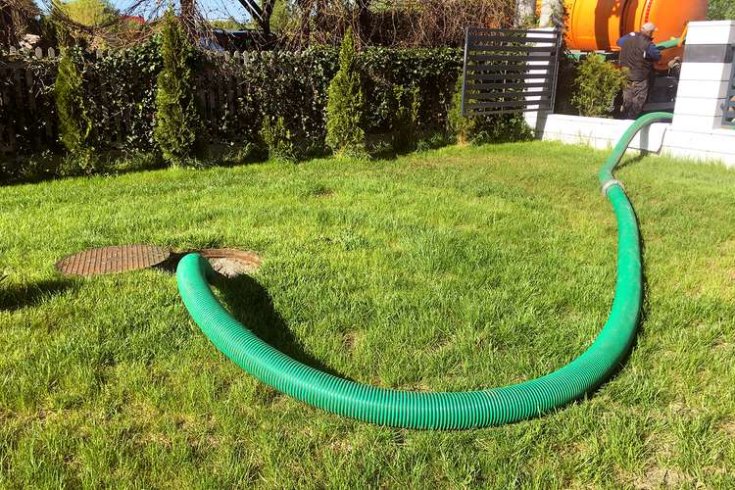
10
Bacteria are essential for the proper operation of septic systems, acting as natural contributors that decompose and handle waste. In the absence of these bacteria, septic systems would find it challenging to process and break down the wastewater entering them, which could lead to backups, obstructions, and possible environmental pollution. Comprehending the role of bacteria in a septic system enables homeowners to effectively maintain their systems with routine tasks, such as septic tank pumping and cleaning.
Bacteria within the septic tank start decomposing the solid waste that has built up, transforming it into simpler substances that can harmlessly flow out with the effluent or stay in the tank as sludge. Anaerobic bacteria, which flourish in environments with low oxygen, are the primary types present in septic systems. They efficiently break down solid substances, lowering sludge volume and avoiding blockages and backups.
Keeping a healthy bacterial ecosystem is essential for efficient waste management. Regular septic tank cleaning is crucial to eliminate substances that can hinder bacterial function, including chemicals, fats, and non-biodegradable materials. It’s advisable to steer clear of strong household chemicals, as they can eliminate helpful bacteria and disturb the equilibrium in the tank.
Regular septic tank pumping in North Carolina is another essential part of upkeep. Pumping the tank aids in avoiding excessive sludge accumulation, which can overload the system and diminish bacterial effectiveness. Arranging regular pumping with Charlotte Septic Pros guarantees your tank upholds a balance between waste entry and bacterial decomposition, ensuring the system operates efficiently.
Should the levels of bacteria decrease or become irregular, the septic tank could start exhibiting symptoms of trouble, including sluggish drains, unpleasant smells, or backups. These problems might suggest that solids are building up too rapidly, necessitating septic tank repair. A septic company can evaluate the circumstances, offer required upkeep, and suggest bacterial supplements if the tank's bacteria are lacking.
Bacteria serve as the foundation of every septic system, decomposing waste and maintaining the tank's functionality. Consistent septic tank cleaning and selecting a dependable septic company for upkeep help in maintaining these crucial bacterial communities. By aiding the bacteria in your septic tank, you can experience a more effective, dependable, and durable system that demands fewer repairs and has a lower environmental footprint.

28
Why Is Sewage Backing Up into My Tub? When wastewater starts rising into your bathtub, it’s more than just unpleasant—it’s…
Read more
22
Can Bacteria Additives Eliminate the Need for Pumping? If you own a home with a septic system, you’ve probably seen…
Read more
12
A single slow drain in your home can feel like a minor inconvenience. Maybe the sink takes a little longer…
Read more
05
Are Slow Drains a Septic Issue or Just a Clog? Slow drains are one of those household problems that start…
Read more
02
What Septic Service Techs See That Homeowners Miss Most homeowners only think about their septic system when something goes wrong.…
Read more
21
Simple Habits That Protect Your Septic System A well-functioning septic system does its job quietly, but the moment something goes…
Read more
14
Pump Now or Pay Later: The Real Cost of Skipping Maintenance A properly functioning septic system is easy to forget…
Read more
11
Why Your Septic System Always Acts Up at the Worst Time Homeowners often feel that septic problems strike at the…
Read more
04
Early Warning Signs Your Septic Tank Needs Pumping For homeowners who rely on a septic system, routine maintenance is not…
Read more
29
Why Does My Septic System Smell Fine One Day and Terrible the Next? If you own a home with a…
Read more